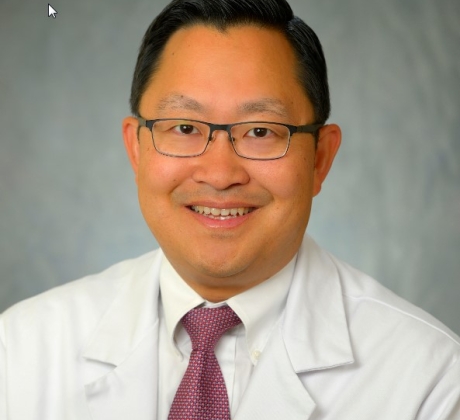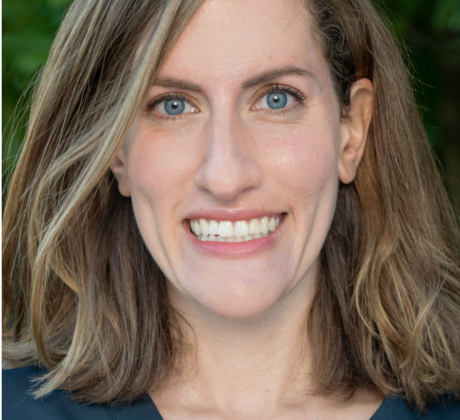Stephanie Ostroff is a speech-language pathologist and journalist. She enjoys blending knowledge from both fields to shine a light on innovators and changemakers in health care.


Charles Bae, MHCI ‘20, uses rapid-cycle testing and contextual inquiry to breathe new life into medical practice.
He used to hear about the dropped calls. The phone tree. But until he dialed his own number, Charles “Chuck” Bae, MD, MHCI, FAASM, never knew what his patients at Penn Sleep Center encountered when they tried to schedule an appointment.
“I see things from my side of the fence,” Bae says. “On the other side, I have no idea.”
Then there were the last-minute cancellations and no-shows. Bae was irked by inefficiencies in his calendar until he spent some time sitting at the front desk with the patient service representatives (PSR). Barriers to access were numerous: transportation, insurance, time.
“As a doc I say, ‘Oh, I have openings. Fill them.’ But change just doesn’t happen overnight,” he explains. “It is critical to map out a workflow, get information from everyone involved at each step of the process, and also involve everyone as part of the solution. It’s amazing what you can learn in a short period of time from a PSR, in terms of barriers to care and opportunities.”
MHCI: Learning to Overcome Inefficiencies
Bae’s experiments were an exercise in contextual inquiry and current-state mapping prompted by the Health Care Operations course he was taking with Christian Terwiesch, PhD, as a student in Penn’s online Master of Health Care Innovation (MHCI). Charting the patient journey from its roots and engaging with stakeholders like the scheduling team brought fresh perspective to challenges that had long mystified him.
Wearing many hats comes standard for Bae. At Penn’s Sleep Center he serves as Associate Chief for Innovation, Quality, & Big Data, a role he took on while earning his MHCI. Bae is also CPAP Program and Clinical Outcomes Director and an Associate Professor of Medicine and Neurology at Penn. In August 2022, he became Assistant Chief Medical Information Officer for Connected Health Strategy, Penn’s telemedicine center.
It is critical to map out a workflow, get information from everyone involved at each step of the process, and also involve everyone as part of the solution
He was drawn to innovation from the beginning of his career. When Bae started his training at Cleveland Clinic, sleep medicine itself was a relatively novel field, having only formally existed since the 1970s. While at the time some physicians dismissed the study of sleep as superfluous, Bae saw a specialty at an inflection point, teeming with opportunities for growth. Two decades after graduating from medical school, he was ready for more.
As a physician, Bae says, “You see a lot of problems or things that are inefficient or could be better. The things that I’ve seen and experienced kind of highlight what needs to be fixed and what’s broken in health care.”
Bae began the MHCI in 2018. A recent transplant to Philadelphia, he was at a crossroads in his career. He had spent the prior 19 years at Cleveland Clinic, juggling roles as professor, staff physician, and Quality Improvement Officer for the Sleep Center.
While many of his peers pursued MBAs, Bae sought a degree that would give him new tools to break down the roadblocks he navigated on a daily basis. The MHCI’s combination of courses included readings and assignments that supported him in deploying new strategies in real-time.
You take a great idea, implement it for two weeks, see what happens, and iterate on the results.
Bae found himself regularly engaging in dialogue with leaders in biotech, nursing, research, and other industries, since the program draws students and faculty from across disciplines. Because the MHCI is designed for working adults, Bae appreciated the freedom to carve out study time amidst his professional and personal obligations (including a wife and three sons).
“Some people are fine going to work, seeing patients, going home. But...I’ve never just wanted that. I have always gotten involved with projects to improve things Bae says. He views the MHCI as a “different way to combat burnout” for mid-career physicians.
Using Innovation to Transform Workflows
Bae is interested in operational innovation: transforming existing workflows and developing new models of care. For years he has been involved on a national level with the American Academy of Sleep Medicine, now serving as Chair for the Coding and Compliance Committee and as RVS Update Committee Advisor. As someone invested in process improvement, Bae was familiar with the Plan-Do-Check-Act (PDCA) cycle, but had never received formal training in it until entering the MHCI.
“Instead of coming up with this big project that could take months, it’s better to break up a project into mini pilots,” Bae explains. “You take a great idea, implement it for two weeks, see what happens, and iterate on the results.”
From Pilot to Practice
As he completed his degree, Bae found no shortage of opportunities to put these methods into practice. When the COVID-19 pandemic hit, he was charged with rolling out a telemedicine model that he says is still heavily used at the Penn Sleep Center. Now, Bae is applying what he learned about rapid-cycle innovation motivation, and choice to standardize systems like phone call documentation and improve patient adherence to CPAP therapy.
The latter project, PennPALS, involves a two-way text messaging platform that Bae developed in conjunction with Penn’s Center for Health Care Innovation. He sees it as an “offshoot of the MHCI experience” since it “pulled together a lot of [what he] learned in the Master’s,” including collaboration with stakeholders from across the health care spectrum. Baked into the program are theories on choice architecture derived from the Behavioral Economics and Decision Making course he took with Kevin Volpp, MD, PhD.
After running two pilots, PennPALS is launching at the Penn Sleep Center summer 2022, with potential to expand across the greater Penn Medicine community. By channeling fresh insight from the classroom, Bae expects this and the other projects on his docket to land more impact.
“It’s all about, how do you motivate people to do something different?” he says. “That’s the kind of stuff that interests me, in terms of how to motivate change not only in operations, but in patients.”

